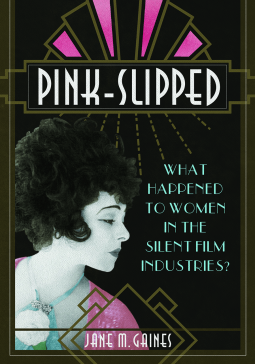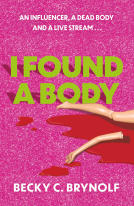
Pink-Slipped
What Happened to Women in the Silent Film Industries?
by Jane M Gaines
This title was previously available on NetGalley and is now archived.
Send NetGalley books directly to your Kindle or Kindle app
1
To read on a Kindle or Kindle app, please add kindle@netgalley.com as an approved email address to receive files in your Amazon account. Click here for step-by-step instructions.
2
Also find your Kindle email address within your Amazon account, and enter it here.
Pub Date 15 Mar 2018 | Archive Date 22 Mar 2018
Talking about this book? Use #Pink-slipped #NetGalley. More hashtag tips!
Description
Using individual careers as a point of departure, Jane Gaines charts how women first fell out of the limelight and then out of the film history itself. A more perplexing event cemented their obscurity: the failure of 1970s feminist historiography to rediscover them. Gaines examines how it happened against a backdrop of feminist theory and her own meditation on the limits that historiography imposes on scholars. Pondering how silent era women have become absent in the abstract while present in reality, Gaines sees a need for a theory of these artists' pasts that relates their aspirations to those of contemporary women. A bold journey through history and memory, Pink-Slipped pursues the still-elusive fate of the influential women in the early years of film.
Jane M. Gaines is a professor of film at Columbia University. She is the award-winning author of Contested Culture: The Image, the Voice, and the Law and Fire and Desire: Mixed Race Movies in the Silent Era.
Advance Praise
"A preeminent and provocative feminist historian of early cinema, Jane Gaines has always balanced empirical research with philosophical interrogation of how 'history' as an object of knowledge is itself historically conceived, practiced, and legitimated. She goes even further in Pink-Slipped, developing a 'melodramatic theory of historical time' that should be read by every historian, whatever their focus. A groundbreaking and brilliant book!"--Vivian Sobchack, author of Carnal Thoughts: Embodiment and Moving Image Culture
"This is not simply a book about the historiography of early film history or women's place in it. Gaines's larger argument is more ambitious, as she attempts to trouble, complicate, and inject some skepticism into the historical project in which she and others are engaged."--Patrice Petro, author of Idols of Modernity: Movie Stars of the 1920s
"Jane Gaines has been our great pioneer of feminist film history, blazing a trail into the neglected terrain of women filmmakers, particularly during the silent era. In this complex new work she traces a path into controversial areas of the theory of history and the goals of feminist film studies. This is a book that questions assumptions and will agitate our field."--Tom Gunning, author of D. W. Griffith and the Origins of American Narrative Film: The Early Years at Biograph
Available Editions
| EDITION | Paperback |
| ISBN | 9780252083433 |
| PRICE | US$29.95 (USD) |
| PAGES | 320 |
Links
Featured Reviews
 Librarian 121315
Librarian 121315
We see the role of women increasingly being explained within the greater scope of universal history, and it is not surprising that these new information is being gathered by women themselves. Jane M. Gaines is looking into the area of motion pictures finding that women had been part of it even when this is barely mentioned (if it is at all) in film history books. This is a very short book, so it barely touches on the subject, but it does in a way that the readers feel prompted to explore it more. At about 297 pages, 200 of those pages belong to the actual text and the rest of them are devoted to tools such as an appendix, notes, a bibliography, and an index which users can use to expand more on this subject. I think this book will be a nice addition to any Women’s Studies and Film Classes as it may help readers find direction within a relatively new subject. I received a free copy via NetGalley.
 catherine h, Reviewer
catherine h, Reviewer
Intriguing book. I had hoped it would be a pleasanter read, but it bogs down and gets a tad confusing at times. Still, it was interesting enough of a read about a subject I don't think has been explored enough. I love the old silent films! I had hoped to at least glean enough info to get started looking up women in the early industry on my own. sadly, much info has been lost or buried, so it was exciting to discover this book. Jane M. Gaines does deserve some credit for attempting to get the info she found out here for all of us. And there are good leads in it. More research likely needs to be done. I'm not sure I'd recommend this book to any but real silent film fans, and even then, maybe they should check out this book in a library before purchase for their collection.




